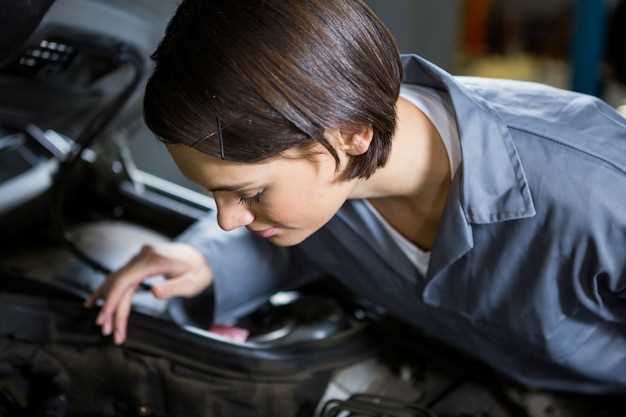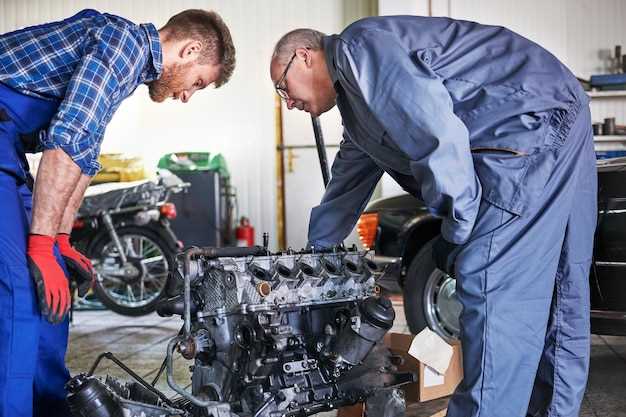
Maintaining the health of your vehicle’s engine is essential for ensuring its longevity and optimal performance. The upkeep of your engine plays a significant role in how smoothly your vehicle operates on the road. Understanding the key components of engine maintenance can help you avoid costly repairs and keep your car running efficiently.
Regular oil changes, fluid checks, and air filter replacements are just a few of the crucial steps you should incorporate into your routine maintenance. These simple tasks can prevent build-up and wear, ensuring that your engine performs at its best. Furthermore, paying attention to warning signs such as unusual noises or decreased performance can help you catch potential issues early.
By prioritizing the upkeep of your engine, you not only enhance its performance but also contribute to your vehicle’s overall efficiency. In this article, we will explore effective tips to keep your engine running smoothly, helping you maintain a reliable and enjoyable driving experience.
Regular Oil Changes and Their Importance
Regular oil changes are vital to the proper upkeep of your car’s engine. Engine oil lubricates the moving parts, reduces friction, and helps dissipate heat generated during operation. Over time, oil can degrade, leading to the accumulation of contaminants that can hinder engine performance.
Changing the oil at recommended intervals ensures that your engine remains well-lubricated and functions efficiently. Fresh oil provides better protection against wear and tear, extending the life of various components. This practice also enhances fuel efficiency, allowing your vehicle to operate more economically.
Neglecting regular oil changes can result in serious issues, such as sludge buildup, overheating, and ultimately engine failure. These problems can lead to costly repairs or a complete engine replacement. Therefore, adhering to an oil change schedule not only improves engine performance but also saves money in the long run.
In summary, regular oil changes are a key aspect of maintaining your car’s engine health. By prioritizing this routine maintenance, you ensure optimal performance and longevity, making your driving experience more reliable and enjoyable.
Monitoring Coolant Levels and Preventing Overheating

Maintaining proper coolant levels is crucial for ensuring your car’s engine runs smoothly. The coolant not only regulates temperature, but also protects internal components from corrosion and overheating.
Regularly check the coolant reservoir, especially before long trips or during extreme weather conditions. Make sure the engine is cool before opening the cap to avoid injuries from steam or hot fluid. The reservoir should have marked minimum and maximum levels; always ensure the coolant stays within this range.
If you notice that the coolant level is consistently low, inspect for leaks in hoses, the radiator, or the engine block. Addressing these issues promptly can prevent more serious damage and engine failure. Additionally, periodically flushing and replacing old coolant helps maintain its effectiveness and longevity.
Pay attention to the temperature gauge on your dashboard. If it rises above normal operating levels, it could indicate overheating. In such cases, safely pull over, turn off the engine, and allow it to cool down. Investigate the issue before resuming your journey.
By actively monitoring coolant levels and addressing any concerns, you can significantly extend the life of your engine and ensure your car runs as smoothly as possible.
Checking and Replacing Air Filters for Optimal Performance

Regular maintenance of your vehicle’s air filter is essential for the overall upkeep of your engine. A clean air filter ensures that sufficient air flows into the engine, which is crucial for smooth operation and optimal performance. Over time, air filters can become clogged with dirt, dust, and debris, restricting airflow and reducing engine efficiency.
Start by checking your air filter every 12,000 to 15,000 miles, or more frequently if you drive in harsh conditions such as heavy traffic or off-road environments. To inspect the filter, locate it in your vehicle, usually found near the engine or in the air intake system. Remove the filter and hold it up to the light; if you can’t see light passing through, it’s time for a replacement.
Replacing a dirty air filter is a straightforward task that can greatly improve your engine’s performance. Simply remove the old filter and install a new one, ensuring it fits snugly in place. This small yet significant action can enhance fuel efficiency, increase horsepower, and prolong the life of your engine.
In conclusion, keeping an eye on your air filter is a key component in maintaining your vehicle’s engine health. Regular checks and timely replacements are vital for ensuring that your engine runs smoothly and efficiently, ultimately saving you money on repairs and fuel costs.




